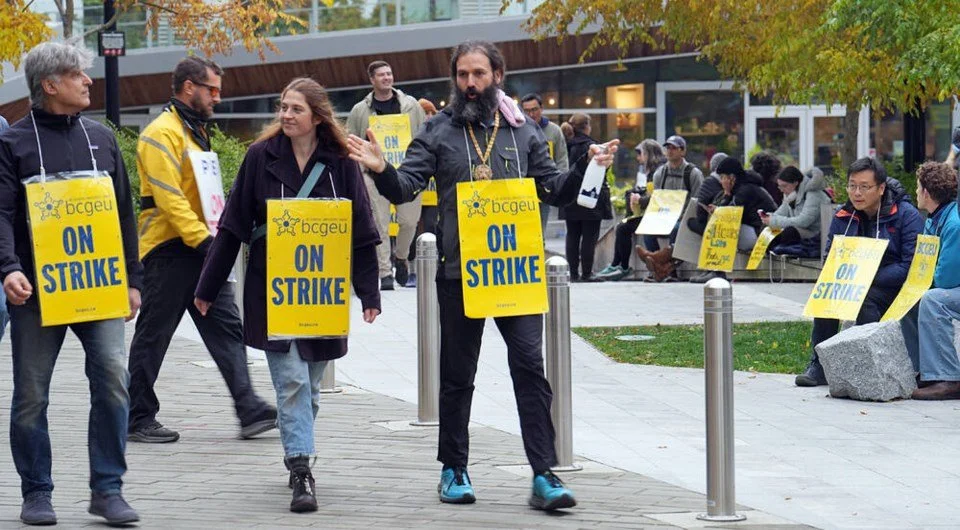BCGEU Reaches Tentative Agreement With BC Government After Weeks of Strike
Photo Credit: Adrian Lam/Times Colonist
On Aug. 29, the BC General Employees Union (BCGEU), comprised of over 95,000 workers across BC, issued a 72-hour strike notice. In a Sept. 4 media release, they announced that “the BCGEU’s campaign [is] for fair wages and a modernized contract [...] Job action will continue to escalate until the government brings a fair offer.”
Then, on Oct. 26, after the strike’s eighth consecutive week with over 25,000 workers on strike across BC, the BCGEU reached a tentative agreement with the BC government. According to an official media release from the BCGEU, under the agreement, employees will receive a general wage increase of 3 per cent for four years, stronger job protections, a faster grievance tribunal process, and improved vision care and counselling benefits.
The BC Public Service Agency (PSA) has been responsible for employing the bargaining BCGEU members and handling negotiations since they began on Jan. 22 of this year. The talks between the government and the BCGEU first broke down on July 18, and in late August, over 92 per cent of BCGEU workers voted in favour of strike action. The PSA invited the BCGEU back to negotiations on Sept. 25, but negotiations broke down again five days later.
One of the primary issues between the PSA and the BCGEU was wages. The BCGEU wanted a guaranteed raise of eight per cent over two years, as this increase would be in line with the rate of inflation. Instead, Minister of Finance Brenda Bailey, who is leading PSA negotiations, offered a raise of five percent per year.
The reason this specific issue was a stumbling block for negotiations is that the BCGEU request is specifically for raises that are equal to or greater than inflation. They believe that anything else means that employees' salaries will effectively decrease year to year.
This means that although the PSA’s counteroffer of five per cent is close to the dollar amount that the BCGEU wants, it does not fulfill their request of preventing salaries from falling behind inflation and cost-of-living increases.
BCGEU members also took their job action to the internet. Approximately 1,000 members attempted to sway public opinion in favour of the union by making posts on social media and reaching out to publications.
“The virtual picket line has been really instrumental in a lot of behind-the-scenes work for the strike,” Tiffany Prince, a BCGEU worker striking online, told the Tyee. According to her, remote strike work includes creating infographics, doing research, and brainstorming ways to keep workers’ spirits up.

